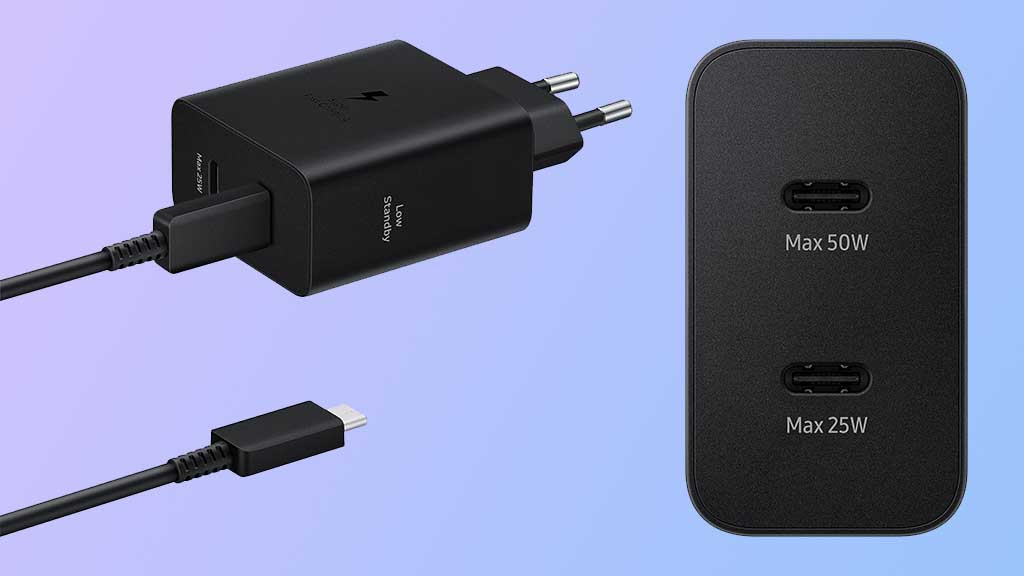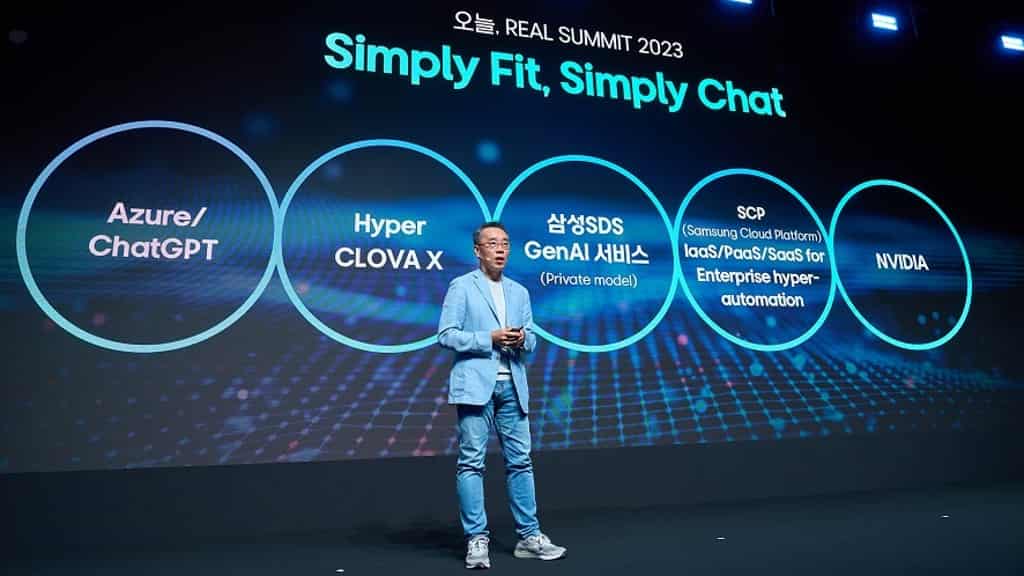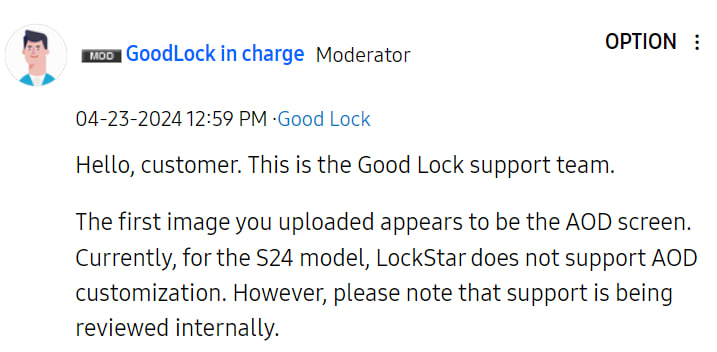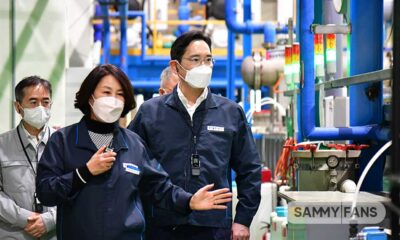News
Samsung’s Chief Lee meets Dutch PM Mark Rutte for semiconductor cooperation

Samsung Electronic’s de facto leader Lee Jae-Yong is on a business trip to Europe. Recently met Mark Rutte at his office in the Hague, the Netherlands. Lee talked with the prime minister to seek cooperation in resolving supply chain issues in semiconductor manufacturing.
Lee Jae-Yong discussed ways to boost cooperation in the semiconductor industry. Lee asked to help Samsung to secure the advanced chipmaking machines from the Dutch chip maker ASML.
DOWNLOAD SAMMY FANS APP
Samsung Chief left for Netherlands, Germany, and France last Tuesday. This is his second business trip in the last six months. He will be visiting UAE to expand Samsung’s business network and search for new business opportunities.

Samsung is making progress in each and every field, recently Samsung Biologics announced building the first overseas production facility in the US. Samsung said that it is certainly expanding 4 plants and is going to begin the partial operations in October 2022.
Early Samsung has represented its 355 billion dollar plan but was trolled on the web for not including the chip-making business in its priorities. Let me tell you Samsung has a plan for everything but it roles out gradually. Currently, Samsung is also trying to diversify its semiconductor supply chain to maintain the availability of stocks for product manufacturing.
Get notified –
Aside from SammyFans’ official Twitter and Facebook page, you can also join our Telegram channel, follow us on Instagram and subscribe to our YouTube channel to get notified of every latest development in Samsung and One UI ecosystem. Also, you can follow us on Google News for regular updates.
News
Samsung’s new 50W adapter charges two Galaxy phones at 25W simultaneously

Samsung launched a new 50W charging adapter (EP-T5020) with dual ports. The product is available in select European countries and we hope the company will soon bring it to more markets. As there’s no phone capable of charging over 45W speed, the 50W adapter is still worth buying.
The New Samsung 50W adapter brings dual ports, allowing users to charge two Galaxy phones at 25W simultaneously. When both ports are used, the adapter will distribute 25W each, making it easier to get two Galaxy devices charged at the same time.
To get 50W speed (USD PD PPS protocol), you need to use the first port, usable to charge Galaxy Book laptops. For additional convenience, the secondary port is capped at 25W charging speed. This means you are not required to charge two devices to get 25W output.
Galaxy S24 Ultra, S24 Plus, S23 Ultra, S23 Plus, and M55 5G are some Samsung devices that support 45W fast charging. Most Galaxy phones and tablets have 25W charging support, which is not much less than Samsung’s 45W brick.
While the availability is limited, the 50W brick can be owned for €69.90. Meanwhile, Samsung also sells 65W triple-port EP-T6530, which you can buy for Galaxy Book laptops. Future Galaxy flagships should bring even more faster charging tech, it’s a long-standing demand.

Image: Roland Quandt
Stay up-to-date on Samsung Galaxy, One UI & Tech Stuffs by following Sammy Fans on X/Twitter. You can also discover the latest news, polls, reviews, and new features for Samsung & Google Apps, Galaxy Phones, and the One UI/Android operating system.
Do you like this post? Kindly, let us know on X/Twitter: we love hearing your feedback! If you prefer using other social platforms besides X, follow/join us on Google News, Facebook, and Telegram.
News
Samsung to discuss Generative AI, Hyperautomation at Dell Technologies World 2024

Samsung’s IT service unit will participate in this year’s Dell Technologies World event. Sungwoo Hwang, President and CEO of Samsung SDS, will give a keynote speech at DTW 2024. The event will also be attended by the CEO of NVIDIA Corp. and other industry giants.
Taking place in Las Vegas from May 20 to 23, DTW is an annual IT exhibition hosted by Dell Technologies Inc. On the first day, Samsung SDS’ Sungwoo will take the stage as a keynote speaker. He will speak on “The Future of Generative Artificial Intelligence (AI) and Hyperautomation.”
Apart from Samsung SDS CEO, Michael Dell, chairman of Dell Technologies, Bill McDermott, chairman of ServiceNow, and Jensen Huang, CEO of NVIDIA will also present the keynote speech at Dell Technologies World 2024 event.
Samsung SDS highlights that the term “Hyperautomation” refers to a technology that automates office tasks seamlessly through Generative AI. This is the first time that the South Korean tech giant is participating in the event as a keynote speaker.
“Hwang was invited by Dell to participate as a keynote speaker alongside industry giants,” a Samsung SDS official said. ”We therefore expect various business discussions to take place.“
Stay up-to-date on Samsung Galaxy, One UI & Tech Stuffs by following Sammy Fans on X/Twitter. You can also discover the latest news, polls, reviews, and new features for Samsung & Google Apps, Galaxy Phones, and the One UI/Android operating system.
Do you like this post? Kindly, let us know on X/Twitter: we love hearing your feedback! If you prefer using other social platforms besides X, follow/join us on Google News, Facebook, and Telegram.
News
Samsung considers LockStar support for Galaxy S24 AOD customization

Samsung is reviewing LockStar for Galaxy S24 AOD customization. The Korean community’s moderator confirmed that the latest flagship phones don’t support personalization of the always-on-display using Good Lock’s LockStar module.
Thanks to the new screens, Samsung’s Galaxy S24 series brings an iPhone-like Always On Display feature. However, the company seemingly missed bounding it with Good Lock for customization. As a result, users are facing issues tweaking it through LockStar.
However, the latest input confirms that Samsung is considering LockStar support for Galaxy S24 AOD. This will allow users to renovate the always-on-display functionality on their device in various aspects including removal of certain elements.
LockStar doesn’t support AOD customization in the Galaxy S24 series. While an internal review is underway, a possible release may happen shortly. Meanwhile, the moderator hasn’t shared any specific timeline regarding the availability of the support.
Good Lock’s LockStar is one of the most popular plugins for Galaxy customization. Not only the lock screen, the LockStar also lets users tweak the AOD function. The suite will likely add support for the newly released phones well before July Unpacked.

Image: Samsung Community
Stay up-to-date on Samsung Galaxy, One UI & Tech Stuffs by following Sammy Fans on X/Twitter. You can also discover the latest news, polls, reviews, and new features for Samsung & Google Apps, Galaxy Phones, and the One UI/Android operating system.
Do you like this post? Kindly, let us know on X/Twitter: we love hearing your feedback! If you prefer using other social platforms besides X, follow/join us on Google News, Facebook, and Telegram.










